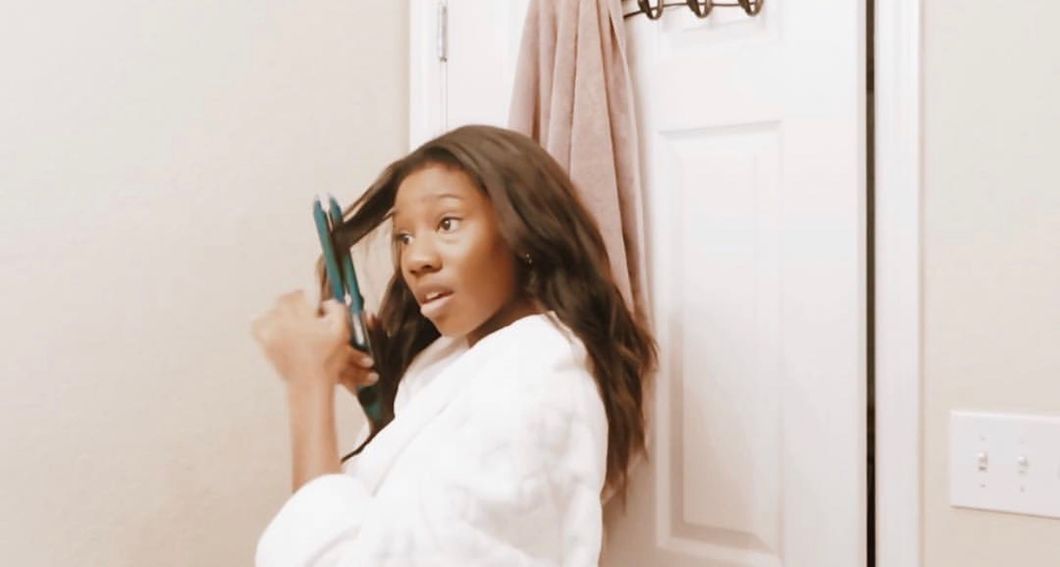Throughout my entire life, something I struggled with was my hair, even though I never really talked about it. I had never been very confident in it, and as I started to do it on my own, I struggled with keeping it healthy and eventually had to keep cutting it short to hide how damaged it was (still is).
I was constantly straightening it and got to a point where I was relaxing it every 3-4 weeks instead of the minimum point of 2-3 months. Every time it looked frizzy in the slightest, I'd text my mom and ask if she'd be able to lather on the chemicals that night. I thought what I was doing was okay and that my hair would somehow manage to become healthy again on its own, but it took me a really long time to admit to myself that I was damaging my hair because of my own insecurities.
This is the first time I'm being completely honest about all of these thoughts.
My first encounter with negative opinions about my hair was when I was in preschool, K4 to be exact, at a predominantly white school. I don't even remember much of it myself, but my mom would tell me how I would come home crying about kids calling me names such as "poodle" and would just constantly pick on me. All because of my hair. Sure, it may not seem that much now, but I was 4 years old. So, my mom decided to relax my hair, thinking that it'd make everything better.
But here comes the third grade. I was new at school and my only close friend was the only other black girl in my class. When my hair had gotten a bit wet during a relay race on field day, a kid in my class touched it and proceeded to ask why it felt like wheat grass.
That's when I stopped letting people touch my hair.
Constantly throughout middle school, I'd get told I had "white girl hair" and black girls would thrust their hand up my scalp to feel for weave tracks. This just encouraged me to do even more damage. But during the summer in-between grades, I would get my hair braided, and friends would text me asking "Why would you get a weave?" Just a few months ago, I had friends saying "I'm glad you never get a weave. I hope you never do that to your hair." This discouraged me from taking the precautions I should have been using to keep my hair protected, its fragile state not being made for being chemically straightened but to bounce freely as natural curls.
It had been almost 5 years since the last time I have braided my hair or done any protective styling in general because these things and the negative way my "friends" talked about me for it were sticking with me, making me think it was wrong to protect my hair. But now I plan on embracing the beauty of my hair and doing whatever I want, and whatever I think is necessary to help it while looking absolutely gorgeous while doing it, no matter what these "friends" think about it.






 The minimum wage is not a living wage.
StableDiffusion
The minimum wage is not a living wage.
StableDiffusion
 influential nations
StableDiffusion
influential nations
StableDiffusion












